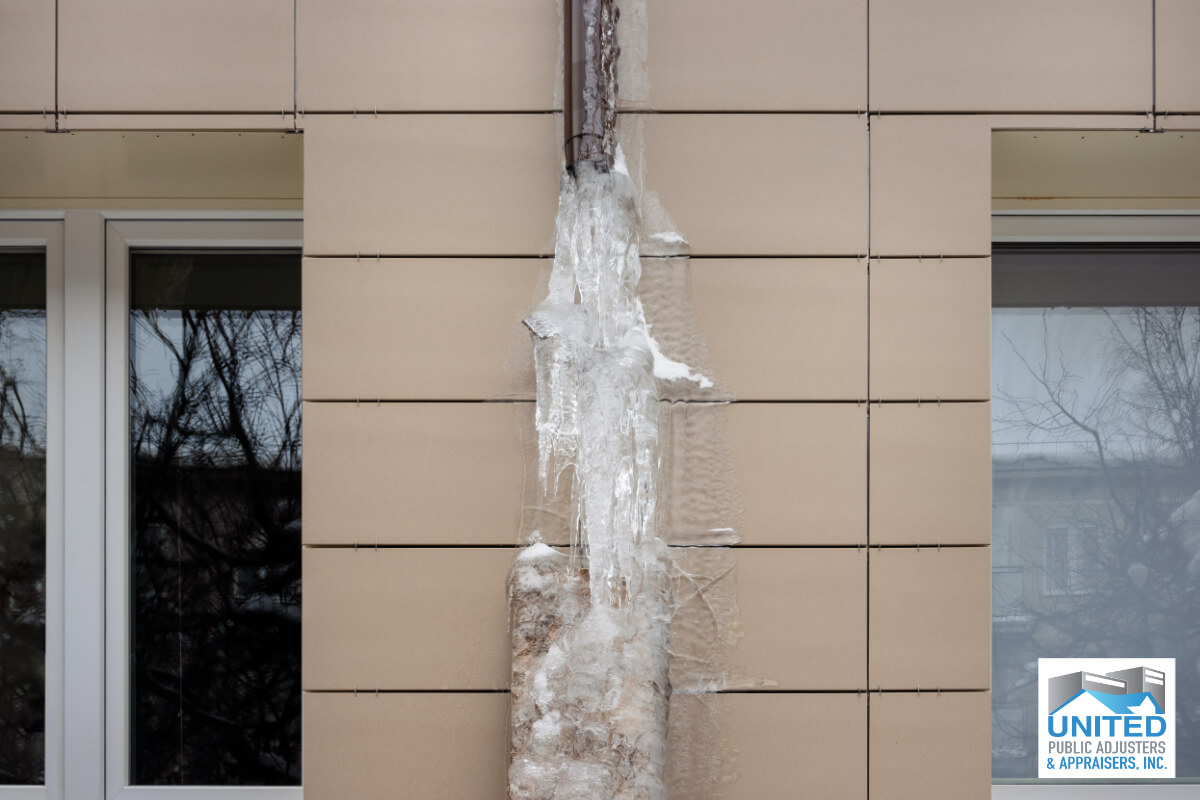
With the holidays upon us, the last thing any New York condo or coop owner wants to think about is having to submit an insurance claim. Especially if that claim is for damage caused by a burst pipe. But here are some sobering facts: 20% of the claims submitted in 2020 were caused by water damage and freezing, so burst pipes happen more often than you might think. Should that occur, the first concern is to clean up the mess, and to assess the damage. There may be an inclination to just throw out any damaged or destroyed furnishings, carpeting, clothing, and/or decor. By the time their insurance policy is dusted off and reviewed, those actions will have proven foolish, and potentially expensive. In this posting, United Public Adjusters & Appraisers will cover what to do when a frozen pipe bursts, and answer the questions, you’d likely be asking yourself “Does homeowners insurance cover leaking pipes?”, or “Does homeowners insurance cover pipes that burst?”
The best time to assess this situation is before it occurs. So now’s a good time to take out your homeowner’s insurance policy and your condo or coop handbook to review its bylaws. That’s because more and more condo and coop boards are changing their rulings concerning responsibility for indoor plumbing. Some boards have transferred the responsibility for maintaining and repairing pipes that service a single unit to that unit’s owners. The problem here is that most pipes are enclosed in walls, so unit owners have little or no idea if their exterior wall pipes are wrapped and insulated or not. If this is the case with your condo or coop and the maintenance responsibility has been transferred to you, the unit owner, contact United Public Adjusters & Appraisers now.
We’ll review your homeowners and personal property policies, and note any oversights that could potentially cost you thousands in liability claims. That is because if you are now responsible for your interior pipes, and if they rupture, leak, and cause damage to your neighbor’s unit or property, then your neighbors can hold you liable. Our team will make certain that your policies are up-to-date with your board’s new mandates, so you’ll be prepared. Now to address what to do immediately following a burst pipe:
Shut off the water to your unit. Burst pipes occur because freezing expands water pressure by tens of thousands of pounds per square inch (PSI). Know where your water shutoff valve is and turn off the water immediately to prevent further flooding and damage. If the leak is a trickle or a deluge, consider shutting off your electricity as well to prevent a fire.
- Open a faucet to relieve any remaining water pressure.
- Call a plumber. Preferably, one providing 24-hour emergency services. Your contractors should be on your cell phone, if not make notes for future reference.
- Start the mop up detail. Your efforts now will reduce or prevent mold later.
- Call United Public Adjusters & Appraisers and notify your community’s maintenance service.
Our team will assess your damages, assist with temporary housing, and begin the process of claim documentation and submission. We’ll review what your policy entails, and photograph damages/losses. This is an important step and can assist you to receive your full replacement costs. By the way, in 2020 the average payout for an insurance claim for frozen pipe damages/losses was $11,650. So unless you have that change around to spare, you’ll want to substantiate your losses as well as possible. Next, we’ll assist you to draft and submit your claim. Our commitment to our clients does not end at this point. We’re on the case and will negotiate on your behalf until your insurer offers the highest settlement allowed by your policy. So now you know.
For your peace of mind and to ensure the happiest of holidays, there’s no need to Google,“does homeowners insurance cover leaking pipes”, or “does homeowners insurance cover pipes that burst”. Just contact United Public Adjusters & Appraisers.
MY FREE CONSULTATION
"*" indicates required fields
